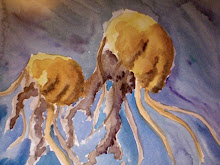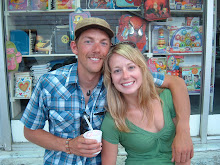 “Good lucks gradually approaching. Just like building a bridge-difficult at first- but happy later.”
“Good lucks gradually approaching. Just like building a bridge-difficult at first- but happy later.”A paper cylinder is filled with 20 some bamboo sticks. You are to shake the cylinder until one bamboo stick falls out. The stick that falls out is your chosen fortune. After a few shakes my fortune fell into my lap and the above quote is what it said.
I found this quote to be very appropriate for my time spent in Cambodia. It pertains well to the work we are doing here.
We are now more than half way into our teaching here. The workshops are going quite well- filled with highs and lows- success and failure. I will tell you now a little about my (Brent) experience.
I am teaching Science Methods. Our class is a shot gun blast of experience and background. We have students who teach physics, biology, chemistry, and Kmer literature. Hmm…I thought when I heard Literature? I guess the level of science is on par with that of an American 8th grader to maybe 12th grader. Some have never heard of Albert Einstein.

My co-teacher is Andre Wille. He is a veteran science teacher; I teach with him in Aspen. We make a good team, filling in the gaps when our minds go blank trying to explain an Independent variable or the Scientific Method. The teaching is slow and calculated. I find that teaching through a translator makes you think more and present ideas with more clarity than normal.
There is a term called Satori. It describes when the mind and body are at full awareness, attention, and presence. The teaching here brings on the Satori mind. The teaching feels refreshing and filling. You have to be so engaged with your students that nothing else outside that class matters. And not just matters, but in a sense, doesn’t even exist. At times teaching here my mind goes through this experience.
 Our students speak no English and we must teach through a translator whose English is good but not native. Just using words to convey information is not enough. I find myself drawing many pictures: birds, trees, diagrams, molecules, etc…I will use props and movements to teach a lesson. I often make fun of myself to make the class laugh and drop their timid walls. Laughter and competition seem to quite engaging for the Cambodian teachers.
Our students speak no English and we must teach through a translator whose English is good but not native. Just using words to convey information is not enough. I find myself drawing many pictures: birds, trees, diagrams, molecules, etc…I will use props and movements to teach a lesson. I often make fun of myself to make the class laugh and drop their timid walls. Laughter and competition seem to quite engaging for the Cambodian teachers.  Our first competition consisted of making paper bridges. First we gave them one paper and instructed them to construct a bridge spanning a 7” gap. The twist is that their bridge design must be able to hold weight. The weight we used were quarter size washers and metal nuts. The team that won made a great bridge, skinny with triangle folds, able to hold 28 washers!
Our first competition consisted of making paper bridges. First we gave them one paper and instructed them to construct a bridge spanning a 7” gap. The twist is that their bridge design must be able to hold weight. The weight we used were quarter size washers and metal nuts. The team that won made a great bridge, skinny with triangle folds, able to hold 28 washers!We then said the river was flooding and new bridge needed to be made. This time they could use 10 sheets of paper and 7” of masking tape. The challenge now to span a 1.5ft gap and hold as much weight as possible. The winning team made an amazing bridge holding all the washers and nuts, plus 2 tennis ball size rocks! The winning team was very excited to beat all the other competitors.
 It is challenge activities like this which we tailored out workshop around. Inquiry science is the technical name. We as teachers present a question and the students must then answer the question. This type of teaching is very strange to the colonial traditional form of school. There is no memorizing or regurgitation of facts. They must work together, pool their critical thinking skills, and solve a problem. Not only is it challenging for them, but it is fun! They laugh so much while learning, who knew this could be possible.
It is challenge activities like this which we tailored out workshop around. Inquiry science is the technical name. We as teachers present a question and the students must then answer the question. This type of teaching is very strange to the colonial traditional form of school. There is no memorizing or regurgitation of facts. They must work together, pool their critical thinking skills, and solve a problem. Not only is it challenging for them, but it is fun! They laugh so much while learning, who knew this could be possible.Then the bamboo stick fortune comes back into the picture. “Building a bridge is hard at first.” After one lesson we asked if they could use this technique in class? The class went quiet and still. Sadly they said no, not possible in their classes of 50, 60, or even 70 kids. I have no idea what to say to this. I have no experience teaching 60 students…? Later that day I spoke to them about our workshop. I know all the things we do in the workshop cannot be replicated. Yet they can be improved upon, changed, and tweaked to meet their needs. We as presenters can only do so much, it is up to them to be creative.
 The fortune again rings in my mind, “hard at first, but then happy.” Change is slow. Look at any institution, especially governmental, and it takes forever to change. Compound that in a third world country with no resources, dollar a day living, and it seems almost impossible. I am proud to be a teacher serving and sharing my knowledge with the Cambodian people. The work is hard at times, discouraging, yet there is always the smiles and potential for transformation. The hope drives the teaching, the feeling that the hard work now will pay off in the future
The fortune again rings in my mind, “hard at first, but then happy.” Change is slow. Look at any institution, especially governmental, and it takes forever to change. Compound that in a third world country with no resources, dollar a day living, and it seems almost impossible. I am proud to be a teacher serving and sharing my knowledge with the Cambodian people. The work is hard at times, discouraging, yet there is always the smiles and potential for transformation. The hope drives the teaching, the feeling that the hard work now will pay off in the future 




3 comments:
I am proud of you Boy...Pops
Brent, you were born to be a teacher. In whatever form that takes throughout your life, whether it be work, relationships, children...you will be wonderful at it. Can't wait for you guys to get home and hear more about your trip!
p.s. your car is covered in bird shit.
B...so nice to hear your voice this morning. A bit of a fog since I was half asleep. I do remember assuring you that YES, Pecos is alive and we would love some Raybans. Hope all is well. Love you guys.
Post a Comment